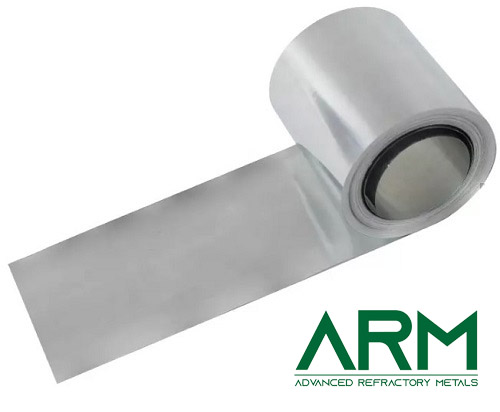
Introduction
Titanium has become one of the most valuable materials in the medical industry. Among its various forms, medical-grade titanium foil plays a vital role in numerous healthcare applications, ranging from surgical implants to precision medical instruments. This article will explore the key properties, applications, and benefits of medical-grade titanium foil.

Key Properties of Medical Grade Titanium Foil
1. Biocompatibility:
One of the primary reasons titanium is used in medical applications is its excellent biocompatibility. Medical-grade titanium foil does not react adversely with biological tissues, which makes it suitable for use in the human body. It resists corrosion from bodily fluids and does not cause harmful reactions, reducing the risk of rejection when used in implants.
Related reading: Applications of Titanium Materials in the Medical Industry
2. Strength-to-Weight Ratio:
Titanium foil is known for its impressive strength while remaining lightweight. This property is critical for medical devices and implants that require durability without adding unnecessary weight. Medical-grade titanium foil maintains its mechanical strength, even in thin layers, allowing it to be used in delicate applications that need both precision and reliability.
3. Corrosion Resistance:
Titanium’s natural resistance to corrosion, especially in environments rich in saline solutions like the human body, makes it an ideal material for medical implants and instruments. It can withstand long-term exposure to bodily fluids without degrading or losing its structural integrity, which enhances the longevity of medical devices.
4. Non-Magnetic:
Titanium is non-magnetic, making it a preferred material for medical devices and implants used in patients who may require MRI scans. The non-magnetic nature of titanium prevents interference with imaging equipment, ensuring accurate results during diagnostic procedures.
5. Flexibility and Malleability:
In its foil form, titanium is highly malleable, meaning it can be easily shaped and adapted to specific medical applications. This flexibility is particularly important in surgeries where custom-shaped implants or devices are required to fit the patient’s anatomy perfectly.
Applications of Medical Grade Titanium Foil
1. Surgical Implants:
Medical-grade titanium foil is used extensively in the creation of implants for various surgical procedures. Thin sheets of titanium foil can be shaped to form parts of orthopedic implants, such as bone plates and screws, spinal fusion cages, and artificial joints. The material’s strength, lightweight nature, and biocompatibility make it ideal for these applications.
2. Dental Implants:
Titanium is a go-to material for dental implants, and titanium foil plays a role in the development of dental devices such as crowns and abutments. It integrates well with bone tissue through a process called osseointegration, ensuring a secure and long-lasting bond between the implant and the jawbone.
3. Cardiovascular Devices:
Medical-grade titanium foil is used in the fabrication of vascular stents and other cardiovascular devices that are implanted to support blood vessels or heart tissues. Its biocompatibility and resistance to corrosion are critical in maintaining the effectiveness and safety of these devices in long-term cardiovascular applications.
4. Surgical Instruments:
Titanium foil is also used to create precision surgical instruments that are lightweight, durable, and easy to handle. These instruments are resistant to corrosion, which is important during sterilization processes and ensures that they remain safe for repeated use in various surgeries.
5. Prosthetics and Orthotics:
In the field of prosthetics and orthotics, medical-grade titanium foil is used to craft parts of artificial limbs and supportive devices. The lightweight properties of titanium make prosthetic limbs more comfortable for patients to use, while its strength ensures durability.
6. Medical Sensors and Electronics:
Medical-grade titanium foil is increasingly used in medical sensors and electronic devices implanted in the body for monitoring or therapeutic purposes. The non-magnetic and corrosion-resistant properties of titanium make it ideal for these sensitive, often life-critical devices, such as pacemakers and neurostimulators.
Benefits of Medical Grade Titanium Foil
1. Enhanced Patient Comfort and Safety:
The lightweight and strong nature of titanium foil ensures that patients experience greater comfort when fitted with implants, prosthetics, or other medical devices. Additionally, titanium’s biocompatibility reduces the risk of adverse reactions or complications, which improves patient safety and outcomes.
2. Long-Term Durability:
Medical-grade titanium foil is highly durable and resistant to wear, ensuring that implants and devices made from titanium last for many years. Its corrosion resistance also minimizes the need for replacements, reducing the number of surgeries patients must undergo.
3. Compatibility with Advanced Medical Technologies:
Titanium’s non-magnetic properties make it compatible with advanced medical imaging technologies, such as MRI scans. This compatibility is essential for patients who have implants or medical devices that may need to be monitored throughout their lifetime without interfering with diagnostic procedures.
4. Flexibility for Customization:
In applications where custom-fitting implants or devices are required, medical-grade titanium foil can be easily shaped to meet the precise needs of the patient. This flexibility is crucial in orthopedic and dental surgeries, where implants must be designed to match the patient’s unique anatomy for optimal functionality.
Conclusion
Medical-grade titanium foil has become an essential material in the medical field due to its unmatched combination of biocompatibility, strength, and corrosion resistance. Its wide range of applications, from surgical implants to medical instruments, showcases its versatility in improving patient care and enhancing the capabilities of modern healthcare. As technology continues to evolve, the use of titanium foil in medical devices and implants will expand. For more information, please check Advanced Refractory Metals (ARM).

